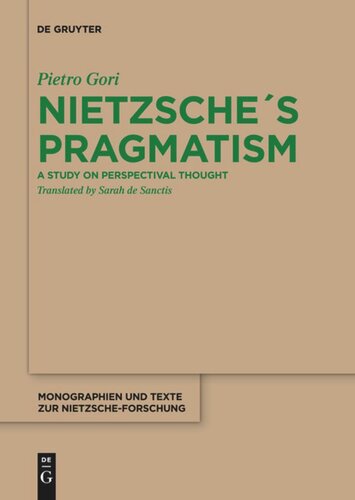

Most ebook files are in PDF format, so you can easily read them using various software such as Foxit Reader or directly on the Google Chrome browser.
Some ebook files are released by publishers in other formats such as .awz, .mobi, .epub, .fb2, etc. You may need to install specific software to read these formats on mobile/PC, such as Calibre.
Please read the tutorial at this link: https://ebookbell.com/faq
We offer FREE conversion to the popular formats you request; however, this may take some time. Therefore, right after payment, please email us, and we will try to provide the service as quickly as possible.
For some exceptional file formats or broken links (if any), please refrain from opening any disputes. Instead, email us first, and we will try to assist within a maximum of 6 hours.
EbookBell Team

5.0
110 reviewsDuring his late period, Nietzsche is particularly concerned with the value that mankind attributes to truth. In dealing with that topic, Nietzsche is not primarly interested in the metaphysical disputes on truth, but rather in the effects that the "will to truth" has on the human being. In fact, he argues that the "faith in a value as such of truth" influenced Western culture and started the anthropological degeneration of the human type that characterizes European morality. To call into question the value of truth is therefore necessary, if one wants to help mankind to find her way in the labyrinth of nihilism.
In this new addition to Nietzsche scholarship, Gori explores the origin and aim of the philosopher's late perspectival thought by merging the theoretical with the historical approach, with a special focus on the epistemological debate that influenced Nietzsche. As a result, the book provides a contextual reading of the issue that supports the idea that Nietzsche’s attitude in addressing the problem of truth is, in a broad sense, pragmatic.